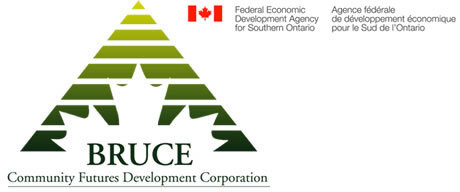4 For Friday: Talent with Mandy Gilbert, B Corps, Capital for Scaling + EOS
We skipped Four 4 Friday last week because we were getting ready for Small Business Week. There was so much happening, and I will be watching replays of presentations for weeks to come! Here's a couple highlights.
Let’s Talk Talent - Mandy Gilbert
There was certainly a “talent” theme to both Grey Bruce Small Business Week and Xcelerate Summit this week. It should be no surprise. Entrepreneur, investor and author Mandy Gilbert shared with us that 48% of Canadian companies report difficulty filling roles. So, while the labour market may be tough here locally, we are certainly not unique in that regard.
Mandy walked through the hiring process and provided piles of actionable things we can do to improve retention and attraction in our organizations.
One tactic that stuck out to me was the importance of the onboarding process. How do you onboard employees in your organization? According to Mandy, the onboarding process can significantly enhance retention among employees, and there’s some convincing statistics on onboarding here from HR platform Sapling.
Building an employee-centred culture was a strategy both Doug Younghusband from Boston Pizza Owen Sound and Tammy Shermon, of Caframo, spoke to during the panel discussion. They emphasized talking to our teams about what is working and what's not, listening to their needs and ideas to improve culture and performance, as well as asking them what they love about the organization.
“The costs of living have increased throughout this pandemic so competitive compensation needs to reflect this.”
At Caframo, they built an employee value proposition around this and use it to recruit new people. They also looked for ways to reward employees and recognizing that "what got us here won't get us there", they increased compensation over the last year to reflect the higher cost of living.
At the end of the day, often what makes the difference between great employers and the rest are the little things; thank people for a job well done, provide ongoing coaching and encouragement, and show that you value their contribution.
2. B CORP can be for anyone
I certainly have never considered a law firm to be a B Corp., nor how this certification would help with employee recruitment and retention, but that was exactly the focus of this Xcelerate panel.
If you aren't familiar with B Corps, a quick explainer. Certified B Corporation, or “B Corp.” is a certification process that measures profit as well as your impact on people and the planet. It's called a "triple bottom line" and it's gained momentum as people pursue business for good.
I love the concept of the B Corp. Until today, I had believed it was more for companies that were manufacturing "green" products or tech companies. It actually makes a lot of sense though that any business that cares about the environment and social good would pursue it.
It’s a lengthy process to be certified (18 months) and often easier to do as a start-up that’s still building policies and procedures and can design them with the B Corp guidelines in mind. If this is of interest to entrepreneurs in our community, we’d be happy to put you in touch with the folks at the Sandbox Centre in Barrie who specialize in B Corps.
3. Capital Options for Scaling Entrepreneurs
As a wrap-up to Small business week, I was pleased to host this panel discussion with a couple of our funding partners this afternoon:
Merry Bounpraseuth & Lori Gansevles, BDC
Barb Fisher, Bruce Community Future Development Corporation
Bob Nichol - Bluewater Angel Investors Group
We opted to present the perspectives of these organizations because we felt it was important to showcase some of the alternative sources of capital available to entrepreneurs who may still be considered too high risk for traditional lenders and not yet big enough for venture capital (VC).
One takeaway from the discussion for me was the importance of having a team around you and that team may include a few funders. Building relationships with your banker, as well as these organizations is important to make sure they understand your business and can advocate for your application and favourable terms.
Being community-focused organizations, both the Bluewater Angels and Bruce Community Futures Development Corporation consider the community impact alongside the potential for return and risk assessment. So again, knowing you, your skillset and strengths is important.
When and who you go to for financing largely depends on the nature of your business and the stage you're at. Most entrepreneurs will look to lenders first to secure the working capital they need to grow while also retaining ownership.
Both BDC and BCFDC are able to partner with other lenders and investors to provide you with more options to secure the total capital you may need. Unlike the traditional banks who prefer to make asset-based loans (a real estate or land for example), BDC and BCFDC can also provide loans to help with operating costs, like staff, inventory and more.
Angel investors often come in when significant funding is needed to take the business to the next level, and an entrepreneur has exhausted the funds they can get through other avenues, including friends and family. Often these investments are considered too risky for banks, and they're too early for venture capital (VC) firms. Note: For an in-depth look on how the venture capital landscape has changed at large, give this article a read.
Many angels like to see sales and a focus on lead generation as proof there's a market and an indicator of future potential, however in tech sectors this isn't always possible. The capital required to take an idea to market in itself may be what's needed. In this case, it's critical to research potentials investors to make sure you're pitching to people who have the best chance of not only understanding your concept but being able to assist in the development of it.
Angels play a critical role in the entrepreneurship ecosystem providing pre-seed and seed funding to start-ups, as well as expertise to help entrepreneurs scale. We're glad to have a few in our network and look forward to developing this area of the ecosystem more in the future.
4. EOS with Andrew Turner
Okay, truth time. This was last week, but it's such great stuff I had to include it!
Last week we got a closer look at the Entrepreneur Operating System (EOS) from local EOS Coach Andrew Turner.
Developed by Gino Wickman and presented in the book, "Traction", this is a repeatable and proven business model that helps organizations work smarter and scale more efficiently.
The model is best geared to organizations of 10-250 people, but I really like that the components can be applied in every business, and after working in a few not-for-profits, I see a lot of elements of EOS that would really help social impact organizations work better too.
Because as Andrew pointed out, growth doesn't always mean profits, sometimes it means freeing up more time for the owner or reducing stress in the organization.
I think for newer entrepreneurs, the vision component is particularly helpful to clarify your purpose and values to help define your brand and set the tone for how you operate. Andrew has shared a helpful worksheet if this is of interest to you.
If you're a founder that's more scared of the status quo, than you are of change, than this may be a great model for you. If you'd like to check out the book, shoot us a note and we'll hook you up!






